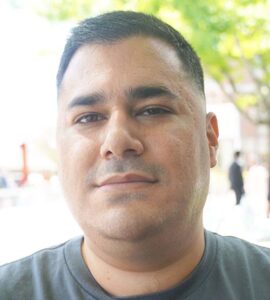Can I live in Dubai if I buy a house?
Buying a home in Dubai gives you the right to own and use that property, but it does not, on its own, grant you the legal right to live in the UAE (United Arab Emirates). To live in Dubai long-term, you’ll need to apply for and obtain a UAE residence visa, which buying a house may allow you to do.
The good news is that there are two routes to obtaining a long-term residence visa in Dubai after buying a home there, including a 2-year property owner residence Taskeen and the 10-year Golden Visa for real-estate investors. Below, I’ll explain both options and everything else you’ll want to know to actually reside in Dubai after you buy.
What Does Buying a House in Dubai Allow You to Do?
Buying property as a foreigner in Dubai is permitted in designated “freehold” areas. This is set out in Dubai’s real-estate laws: the Dubai Land Department (DLD) recognizes non-UAE nationals’ freehold ownership in specific zones approved by the Ruler, under Regulation No. (3) of 2006 and subsequent amendments. In practice, that’s why neighborhoods like Dubai Marina, Downtown, Palm Jumeirah, etc., are open to full foreign ownership.
Ownership, however, is not residency. If you purchase a villa or apartment, you can use it, rent it out, sell it, or pass it on to your heirs. However, you will still need to apply for and obtain a residence visa to reside in Dubai beyond the standard visit visa duration.
Buying a house in Dubai allows you to apply for and be approved for a long-term residency. The duration of residency depends on the value of the property that you purchase. Properties under AED 2M qualify you for the Taskeen Visa. Purchasing a property with a value of AED 2M+ qualifies you for the coveted 10-year Golden Visa.
The Two Methods for Obtaining Long-Term UAE Residency.
Option #1
2-Year Property Owner Residence Known as “Taskeen.”
If you purchase qualifying real estate in Dubai, you can apply for a 2-year residence permit through the Dubai Land Department’s Taskeen Investor Residence Service, issued in coordination with GDRFA (Dubai immigration).
Here are the requirements to qualify for the Taskeen Visa.
- Buy a residential property in Dubai with a minimum value of AED 750,000.
- If your property is mortgaged, the mortgaged property makes you eligible for the Taskeen Visa only if you have paid at least 50% of the loan or at least AED 750,000, whichever is less, at the time of application.
- You must apply for the Taskeen Visa via DLD (Dubai REST app/Service Trustee Centers) with your title deed and supporting documents. Medical exam, Emirates ID, and health insurance are part of the process.
- You can add spouse and children under this route (standard family-sponsorship rules apply).
In practical terms, this visa is popular if you’ve bought a completed property and have the title deed (off-plan units typically must be completed before you can get a title deed and apply). The residence is renewable as long as you continue to meet the criteria.
Option #2
10-Year Golden Visa (Real-Estate Investor)
If you invest a minimum of AED 2 million in UAE real estate, you can apply for and obtain the 10-year Golden Visa.
The Dubai Land Department operates a dedicated service to process Golden Visa applications for real-estate investors, and the UAE’s official portal outlines the core benefits (no sponsor needed, extended validity, wider family sponsorship, etc.).
Golden Visa advantages that matter for real life:
- You don’t need an employer to sponsor you.
- Your residency stays valid even if you’re outside the UAE longer than six months (unlike regular visas).
- You can sponsor your spouse and children regardless of age, and sponsor an unlimited number of domestic workers.
Does Property Ownership Automatically Allow Me to Live and Work in Dubai?
No, buying and owning property in Dubai does not, on its own, make you automatically eligible to live and work in Dubai. You still need to submit a residence application, pass the medical test, obtain an Emirates ID, and maintain valid health insurance. Until your residence is issued, you’re not a resident.
Working is a separate issue. If you plan to be employed by a company, you’ll need a work permit from the Ministry of Human Resources & Emiratisation (MOHRE). For Golden Visa holders, MOHRE provides a specific “work permit for Golden Visa holders” that lets an employer legally hire you while you keep your self-sponsored status. If you’re on a standard property-owner visa, an employer would still process a work permit in the usual way.
If you live in the United States and want to buy property in Dubai, explore our Dubai Real Estate Services page. We help Americans find and purchase property in Dubai. We also guide them through the Visa application process.
Who Can I Bring With Me to Dubai?
If you hold a valid UAE residence visa, you can sponsor immediate family under the federal family-sponsorship rules (minimum income thresholds apply). Golden Visa investors can sponsor their spouse and children, regardless of age, and also sponsor their parents. DLD lists the specific Golden Visa family fees on its eService page.
How Long Can I Be Outside of the UAE?
Under the general rule, most UAE residence visas become invalid if the holder stays outside the country for more than 6 consecutive months. Golden Visa holders are exempt from this rule. They may remain outside the UAE longer than six months without losing their residency in the UAE.
How Can You Live in Dubai after Buying Real Estate There?
Step 1: Buy in a designated freehold area and register the transfer.
Foreigners must buy in areas approved for non-UAE nationals. Once you and the seller sign and complete the transfer at a DLD Registration Trustee office, the title deed is issued in your name. (DLD provides title-deed verification and transfer services online and via Trustees.)
Step 2: Decide which visa fits.
- AED 750k+ property owner (2-year): most straightforward if you purchased one livable, completed property and want a renewable 2-year residence.
- AED 2M+ Golden Visa (10-year): most flexibility (no sponsor; longer validity; outside-UAE allowance; broader family coverage).
Step 3: Apply via DLD / GDRFA.
For a 2-year property residence, DLD’s Taskeen service is the official channel. You’ll need to submit your title deed, passport, ID photos, and bank letters for mortgages. You must undergo the medical exam and obtain health insurance; DLD’s service page shows the medical/Emirates ID steps and fees. Golden Visa applications for real-estate investors are also processed through DLD’s “Golden Visa Investor” service.
Step 4: Get your Emirates ID and health insurance.
In Dubai, residents must have valid health insurance. You’ll finalize your Emirates ID after passing the medical examination and submitting biometrics. (DLD visa services explicitly include the medical and ID issuance; obtaining health insurance is mandatory and is set by the Dubai Health Insurance Law.)
Step 5: Move in & connect utilities.
To set up electricity and water at your new home with Dubai Electricity & Water Authority (DEWA), you’ll use your title deed (for owners) and basic identity documents to activate service. All of this can be done online.
Step 6: If you plan to work in the UAE, arrange the work permit.
Employed roles require MOHRE work authorization. Golden Visa holders have a dedicated MOHRE work-permit path; your employer handles it. Entrepreneurs and consultants can also look at self-employment permits and relevant professional licensing depending on the activity.
Common Dubai Investor Situations and How to Handle Them.
1. I’m buying off-plan. Can I live in Dubai right away?
No. You’ll typically need a title deed to apply for the property-owner visa, which is issued upon completion and handover. Until then, you can use other visa types (employment, company investor, remote-work, etc.) if you’re eligible. DLD’s investor-residence service requires a title deed and sets the AED 750,000 threshold.
2. My property is mortgaged; is that a problem?
Mortgages are allowed for the 2-year property visa as long as you have paid at least 50% of the loan or AED 750,000, whichever is less, and you meet the AED 750,000 value threshold. Have your bank letter and statements ready; they’re standard attachments.
3. What if my spouse and I co-own a property?
Spouses can combine ownership for the property-owner visa and apply together as a family unit through DLD, provided the property meets the AED 750,000 threshold and other requirements (marriage certificate attestation may be requested).
4. Can I be out of the country a lot?
If you travel frequently, the Golden Visa is your best option. Regular residence visas usually lapse after 6 months outside the UAE; Golden Visa holders are exempt and can remain abroad longer without losing status.
5. Will property ownership turn into citizenship?
No. The UAE does not offer citizenship through real estate purchase. Citizenship is granted only by high-level nomination under narrow, exceptional categories; the UAE’s official portal makes this clear. Your path for long-term living is residency (renewable), not a passport.
6. Can I sponsor my parents?
Under the Golden Visa, yes (10-year family residence options exist, and DLD publishes the government fees for parents), under standard residence, parent sponsorship is typically annual and subject to federal rules.
7. Do I need health insurance?
Yes. Dubai residents must maintain health insurance, and DLD’s visa workflows include it as a requirement alongside the medical fitness test and Emirates ID. Budget for a compliant policy for each family member before finalizing your residence.
8. What about Dubai taxes?
The UAE does not levy personal income tax on individuals. That’s one reason many people make Dubai home after getting residency. (Always confirm your home-country tax obligations.)
9. How do I drive legally in the UAE?
Many new residents can convert a foreign driver’s license to a Dubai license (no test) if their license is from an approved country; otherwise, you’ll follow the RTA test route. The UAE’s official portal explains the replacement process and who qualifies.
10. What about schools?
KHDA regulates Dubai’s private schools. Admissions policies and required documents (passport copies, vaccination records, and Emirates IDs when issued) are set under KHDA oversight, so check school-specific requirements early, as popular schools often have waitlists.
11. What documents will I need for utilities and telecom?
DEWA lets owners activate electricity/water online using the title deed and ID documents. For mobile/internet, local operators typically require your Emirates ID for postpaid lines. Plan to complete your residency and Emirates ID promptly after visa approval to streamline these setups.
Here’s a Quick Reference to Numbers That Matter the Most.
- AED 750,000: Minimum property value for Dubai’s 2-year property-owner residence (Taskeen). If mortgaged, you must have paid at least 50% of the loan or AED 750,000, whichever is less. Title deed required.
- AED 2,000,000: Minimum real-estate investment for a 10-year Golden Visa (DLD manages the investor route and publishes official fee schedules and family options).
- 6-month rule: Regular residence visas typically become invalid after more than 180 consecutive days outside the UAE. Golden Visa holders are exempt.
- Health insurance: Mandatory in Dubai for residents (visa issuance workflows reflect this).
- Citizenship: Not available through property purchase; acquisition is by nomination under limited categories.
Which Visa Route is Right for You?
If your property budget range is AED 750k to <2m, and you plan to live in the home you buy, the 2-year property-owner visa is perfectly fine as long as you won’t be abroad for stretches longer than six months. You’ll get residency, sponsor your immediate family, and handle the day-to-day formalities (DEWA, bank accounts, driver’s license, schools) like any resident.
If your budget is AED 2M+, or you travel constantly, or you want the widest family coverage and a simpler employment situation (employer can hire you via MOHRE’s Golden-Visa work permit), choose the Golden Visa. It’s more flexible and designed for long-term stability without dependence on an employer sponsor. Also, it removes the six-month absence headache.
Practical checklist for making Dubai your new home.
- Confirm the area is freehold for foreigners (your broker and the title-transfer desk will know; the legal basis is the 2006 regulation and later updates).
- Close your purchase at a DLD Registration Trustee office and obtain your title deed.
- Pick your visa path (2-year property owner visa vs. 10-year Golden Visa).
- Apply through DLD (Taskeen or Golden Visa investor service). Prepare: title deed, passport, photos, marriage/birth certificates for family, and mortgage statement if applicable.
- Complete medical exam & Emirates ID; purchase health insurance (required in Dubai).
- Connect utilities (DEWA) and move in.
- Sort employment (if relevant): employer obtains MOHRE permit (Golden-Visa-specific route available).
- Plan travel around the 6-month rule (or opt for a Golden Visa to avoid it).
- Enroll kids under KHDA-regulated admissions timelines; keep essential docs ready.
- Convert your driver’s license if eligible; otherwise, book RTA tests.
So, can you live in Dubai if you buy a house there?
Yes, you can, provided you apply for and obtain the appropriate residence visa. Buying the house is step one; residency is step two. For many buyers, the 2-year property-owner residence is a quick, cost-efficient way to live in Dubai. If you qualify for the 10-year Golden Visa, you’ll enjoy the most flexibility (no sponsor, broadened family coverage, freedom to be outside the UAE), which is why many long-term residents ultimately choose it. Either way, the process is transparent and handled through official Dubai Land Department services and immigration authorities, with clear, published rules and fees.


